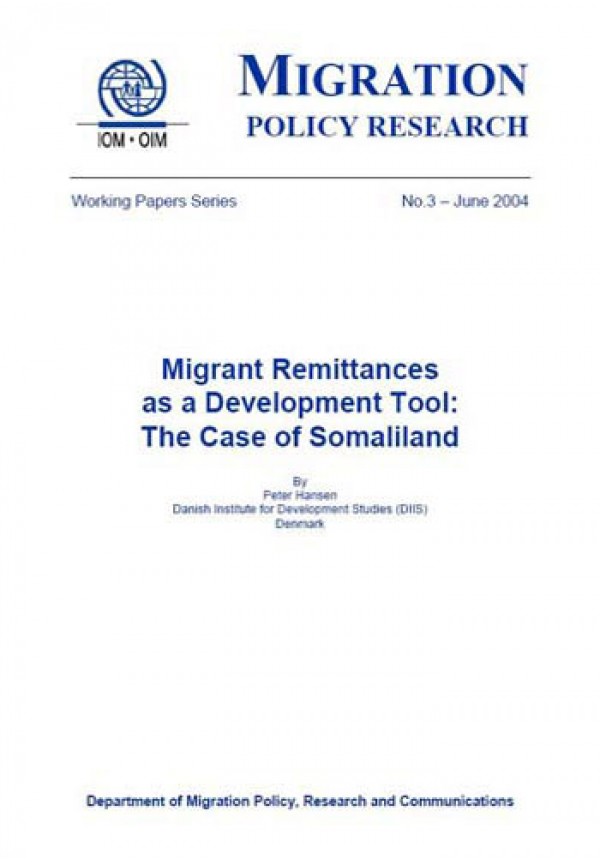
28 Sep 2015
Migrant Remittances as a Development Tool: The Case of Somaliland
Migrant remittances are crucial to the population of one of the world's poorest countries, ensuring food security not only for immediate family members but also friends, the extended family and clan networks. In order to understand the correlation between migration, remittances and development, social transfers also play an important role. This is particularly so in Somaliland, where the Somali diaspora has become involved in the nation-building and development processes of Somaliland.
The study first describes the historical development of the Somali diaspora and distinguishes four main migration waves. It estimates the volume and relative importance of individual and collective remittances and notes their uneven distribution in favour of the cities and the middle classes, though with spill-over or trickle-down effects towards the rural poor, as consumption of rural produce rises, or through the operation of family networks. It highlights the important contribution made by non-financial transfers in the form of human resources on the country's economic, social and political fabric. As statistics on remittances and diaspora involvement remain scarce and imprecise, the study also highlights the issues relevant for future analyses of the migration-development nexus for Somaliland.
The study is based on research and fieldwork on return migration, and on interviews with local authorities, representatives of international agencies and remittance transfer companies conducted by the author in 2003.
Read More
- Introduction
- The Somaliland Diaspora
- Remittances to Somaliland
- The Social Distribution of Remittances
- Forms of Diasporic Engagement
- Financial Institutions in Somaliland
- Economic Challenges in Somaliland
- Development Opportunities
- References